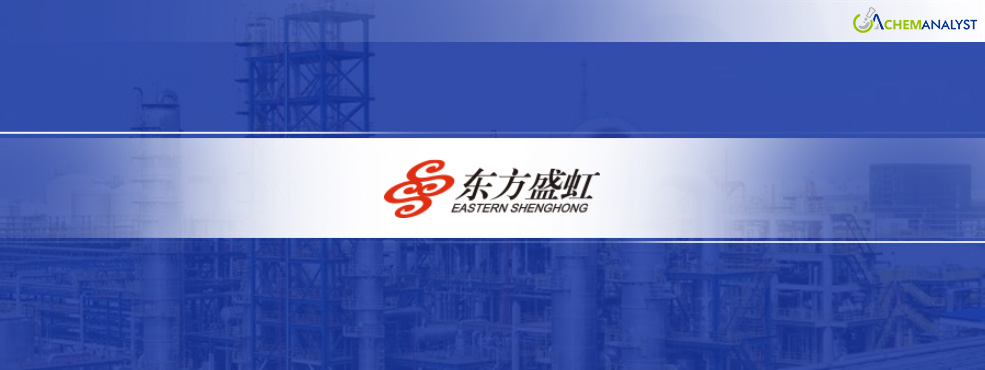Welcome To ChemAnalyst

Jiangsu Sailboat Petrochemical has ushered in a new era of sustainable production with the commencement of commercial operations at its newly launched carbonate plant in Lianyungang, Jiangsu Province, China. Officially operational since November 2024, this plant represents a key milestone in the company’s strategy to meet the escalating global demand for high-purity ethylene carbonate (EC) and dimethyl carbonate (DMC)—critical materials for lithium-ion battery electrolytes used in electric vehicles (EVs) and energy storage systems (ESS).
The cutting-edge plant leverages a revolutionary CO2-based process technology licensed from Asahi Kasei, a global pioneer in the field of CO2 utilization for chemical production. This process allows the facility to use carbon dioxide (CO2) as a primary raw material, transforming it into high-purity EC and DMC with a focus on minimizing carbon emissions. This sustainable approach is in line with global efforts to reduce greenhouse gases while producing essential materials that drive the clean energy transition.
The production of EC and DMC is crucial for the performance and safety of lithium-ion batteries. These carbonates are used as solvents in electrolytes, enhancing the stability, conductivity, and longevity of battery systems. With the rapid growth of the electric vehicle market and the increasing adoption of renewable energy storage solutions, demand for high-purity EC and DMC is projected to soar in the coming decades. Sailboat’s new facility, with a combined capacity of 38,000 tons of EC and 70,000 tons of DMC per year, is set to become a major player in the global supply chain for lithium-ion battery materials.
A key differentiator of Sailboat’s plant is its use of CO2 as a feedstock. This not only reduces reliance on conventional petrochemical sources but also contributes to lowering the carbon footprint of the production process. The facility processes approximately 54,000 tons of CO2 annually, capturing and recycling this potent greenhouse gas into valuable chemical products. This technology is part of Asahi Kasei’s broader strategy to promote CO2 utilization in industrial applications, and the cumulative amount of CO2 used in large-scale production by licensees now totals around 300,000 tons per year, spanning multiple industries, including polycarbonate and carbonate production.
The partnership between Asahi Kasei and Sailboat, which began with a licensing agreement signed in September 2021, reflects both companies’ commitment to sustainability and innovation. Asahi Kasei, which developed the technology in the early 2000s, has continued to refine its process for CO2-based production of plastics and chemicals. The collaboration with Sailboat on the planning, construction, and commissioning of the Lianyunga1ng plant underscores a shared vision for a circular economy and low-carbon industrial development.
In a statement, Xu Jiale, Sailboat’s project manager for carbonates (EC/DMC), emphasized the importance of this development: “Our production of high-purity EC and DMC for lithium-ion battery electrolytes will not only expand our role in the battery supply chain but also support the global transition to sustainable energy by providing critical materials with a reduced carbon footprint.” This sentiment was echoed by Hiroyoshi Matsuyama, Senior Executive Officer of Asahi Kasei and President of its Environmental Solutions SBU, who added: “By licensing this advanced technology, we are furthering our mission to provide sustainable solutions to pressing environmental challenges. Our CO2-based chemistry expertise is helping reshape how vital materials are produced, contributing to a greener and more sustainable society.”
The establishment of this facility comes at a pivotal moment as the global automotive industry accelerates its shift toward electric vehicles. This transition, coupled with increasing investments in energy storage infrastructure, is expected to drive an unprecedented demand for lithium-ion batteries and their key components, such as EC and DMC. Sailboat’s plant will be a critical contributor to ensuring the supply of these essential materials as demand skyrockets.
As the world grapples with the urgent need to combat climate change, Sailboat’s new carbonate plant signals a positive shift in the chemical and energy sectors. With its advanced CO2 utilization technology, Sailboat is contributing to both the clean energy revolution and the broader goal of reducing global carbon emissions. Through this pioneering venture, Sailboat and Asahi Kasei are not only producing materials for a sustainable future but also paving the way for further innovations in CO2-based manufacturing processes that will be integral to the world’s environmental sustainability efforts.
We use cookies to deliver the best possible experience on our website. To learn more, visit our Privacy Policy. By continuing to use this site or by closing this box, you consent to our use of cookies. More info.
